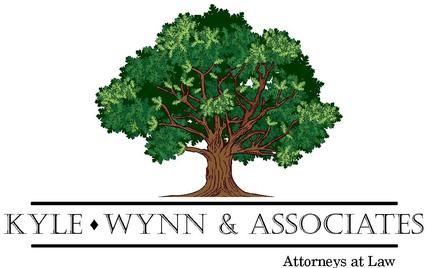Probate

What is Probate?
Probate is the legal process that must be followed when someone dies to make sure that the deceased person's property (their estate) goes to those the deceased wanted to receive it (their beneficiaries) if the deceased left a Will. If there is no Will, then the court will determine who (the heirs at law) will inherit according to applicable state law. Contrary to what a lot of people think, leaving a Will when you die does not allow your estate avoid probate.
If the deceased owned any property that does not pass by beneficiary designation (like a life insurance policy or a retirement account), or real estate (land) that does not automatically pass to a surviving joint owner, probate will nearly always be required. If a person's estate is worth $75,000.00 or less and they owned no real estate at all, under Mississippi law, probate may be avoided by the use of a
small estate affidavit. Very few estates qualify for this, because most people own their home, but if this is something that you require, we can prepare one for you for a reasonable fee. A great way to avoid probate for many people is a
revocable living trust.
A step-by-step look at Probate
After someone dies, what steps must be taken for their property to be distributed? The following will provide you with an idea, but the steps listed below are by no means all-inclusive. Probate is not something you can do yourself. Court rules require that every probate estate be handled by an attorney. A petition is filed with the Chancery Court* in the county where the deceased resided. If there is a Will, we ask the Court to admit the Will to probate and to grant Letters Testamentary to the named Executor. The will is filed with the Court, and becomes a public document available for anyone to view in the Clerk's office, or in most Mississippi* counties, even online on the Chancery Clerk's website. If there is no will, we ask the Court to appoint an Administrator and grant Letters of Administration.
- The Executor or Administrator must sign and file their Oath promising to do what is required of them by the Will, and as instructed by the Court. The Executor or Administrator will be required to post a bond in many cases, a sort of insurance policy to make sure the assets are properly managed.
- If there is no will, the Administrator must then petition the Court to determine the deceased's heirs at law (their next-of-kin) who will inherit the deceased's estate. A hearing date is set by the Court, and a Summons is issued for all known or unknown heirs. This Summons is also published in the newspaper once a week for three consecutive weeks. Someone with firsthand knowledge must give testimony to the Court regarding the deceased's surviving relatives. At this stage, sometimes family members are surprised to learn that the deceased had children from a previous marriage, or even outside their marriage, and they are even more surprised to learn that these previously unknown children have the right to inherit from the deceased! The Court will determine the relatives who are most closely related to the deceased, and those most closely related persons will divide the estate equally. Do you think your spouse is your closest relative who inherits everything in the event of your death? That doesn't happen if you have children. Your spouse and however many children you have will inherit your estate in equal shares. So your spouse only gets as much as one of your children. That's not what most people would want, but it's what happens if you don't do even basic estate planning. If there are children, but no spouse, the children inherit equally. No children? Then we start looking at other relatives like parents and siblings; then nieces and nephews; then aunts, uncles and grandparents; then to cousins, and those who are most closely related inherit equally. If there are no relatives, then the estate escheats to the State.
- The Administrator or Executor notifies the known creditors of the deceased (if any) that an estate has been opened by sending a notice to the creditors, and a notice must then be published in the local newspaper once a week for three consecutive weeks.
- Creditors file their claims for money owed to them with the Court. Creditors may include banks or mortgage holders, credit card companies, providers of medical care, utility companies, or individuals to whom money is owed. The claims of creditors who do not file their claim within 90 days of the first publication of the creditors' notice in the newspaper are barred from recovering from the estate. These claims filed against your estate become public record, exposing your private business to public scrutiny from anyone who may be interested.
- Creditors' claims (if any) are paid from the available assets of the estate. If there are insufficient assets to pay all creditors, claims may be negotiated down, or the court may have to allocate the available assets equitably among the creditors.
- Unless waived by the Court, the Administrator or Executor files an accounting summarizing all of the assets of the estate, all of the creditors who were paid and how much, and the remaining assets due to each heir or beneficiary. The accounting is also a public record, but still must be provided to each heir or beneficiary, and if none of these object, and if the Court approves the accounting, the assets may then be distributed. If assets are to be distributed to a minor, the minor's inheritance must be placed under the care of a guardian, who may only use the assets for the minor's benefit under court supervision until the minor reaches the age of 21.
Remember that this is not an all-inclusive list of the steps that must be taken in the probate process. Disagreements as to who should be named as Executor or Administrator, or as to who should inherit from the deceased may mean that probates become very complicated, very lengthy, and very expensive. Remember that as a practical matter, even the simplest probate takes about nine months, and complicated ones can continue on, even for years. In addition to being complicated, time-consuming, and expensive, from even a cursory reading of the above it is obvious that probate also results in a huge loss of privacy. These are some of the reasons that many individuals and families make the wise choice to avoid having to go through probate. While our firm strives to help families to avoid the probate process, we regularly assist families who unfortunately find that they must deal with the probate of a family member who may have done their estate planning via a will, or may have done no planning at all. Contact one of our attorneys for a consultation to determine the proper steps that must be taken.
*While Mississippi law provisions are cited here, we assist clients in Mississippi, Louisiana, and Tennessee with estate planning and probate matters.
